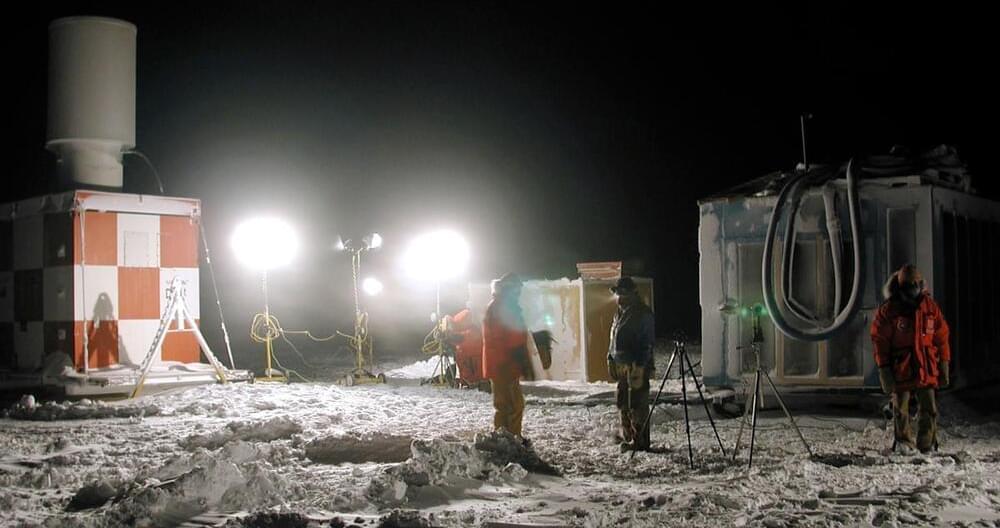Scientists used the IceCube Neutrino Observatory, a special telescope that extends for more than a mile under the Antarctic ice at the South Pole, to capture roughly 80 astrophysical neutrinos from a galaxy known as NGC 1,068, or Messier 77, which has an extremely active galactic core. The finding suggests that these active galaxies provide “a substantial contribution” to the abundance of astrophysical neutrinos, and therefore cosmic rays, that permeate through the universe, according to a study published on Thursday in Science.
“This is a very exciting result because for the first time, we actually understand that astrophysical neutrinos can be related to this very special type of galaxy,” said Theo Glauch, an experimental physicist at the Technical University of Munich and a co-author of the new study, in a call with Motherboard. “We physicists call them active galaxies because they’re very different from, for example, our Milky Way.”
Unlike our own galaxy, which is currently dormant, NGC 1,068 contains “an extremely bright environment which we can only study in neutrinos,” Glauch added. “Neutrinos are the only particles that can directly escape from the processes that drive this extremely high luminosity in the core of those galaxies.”
